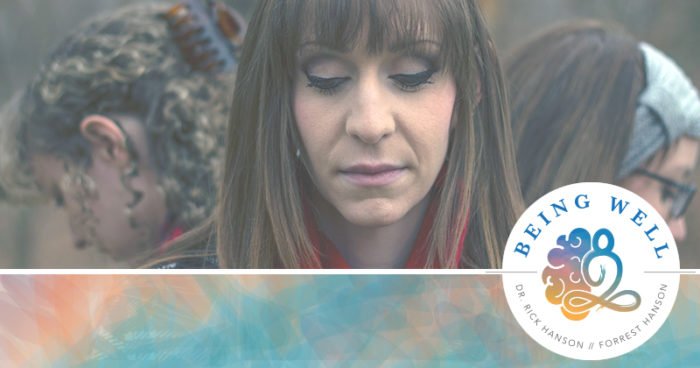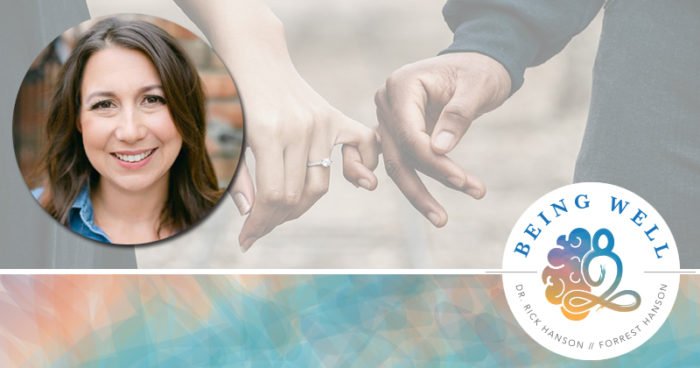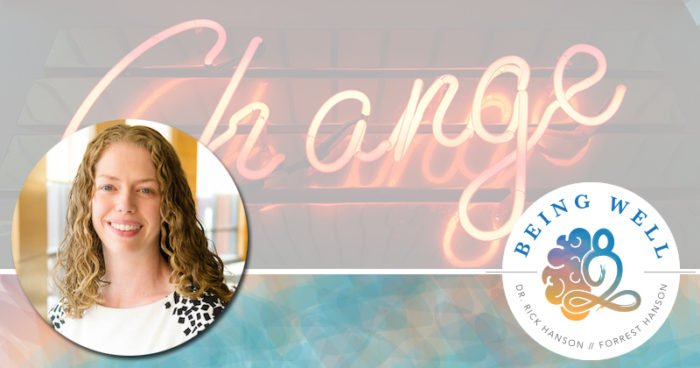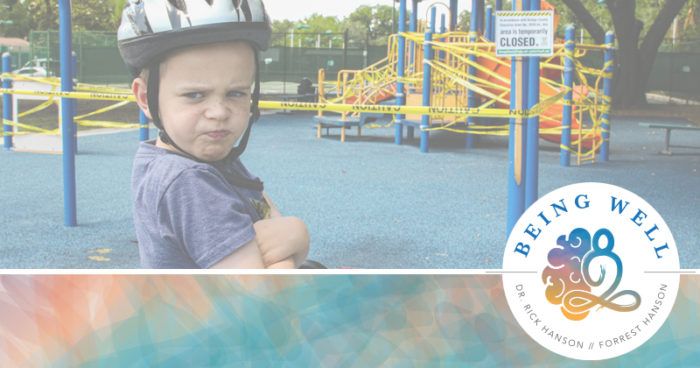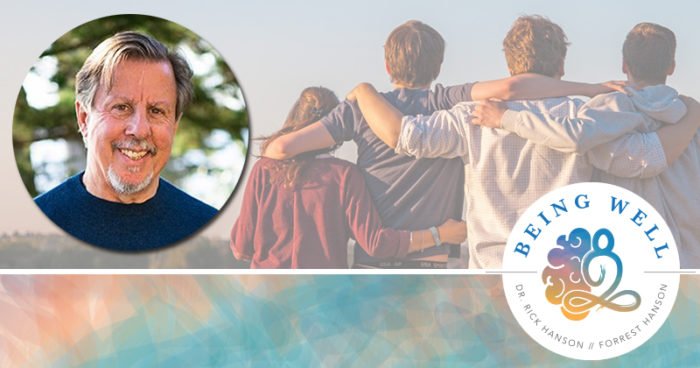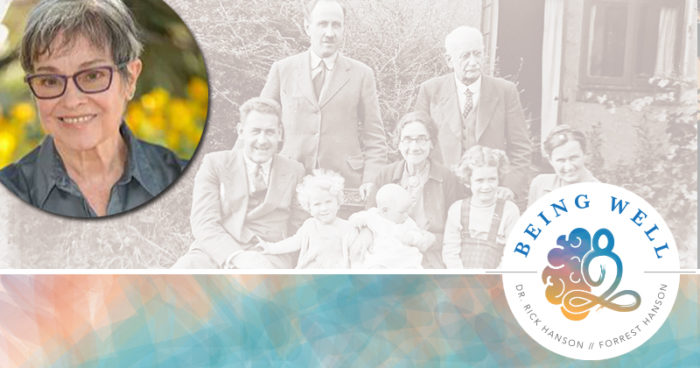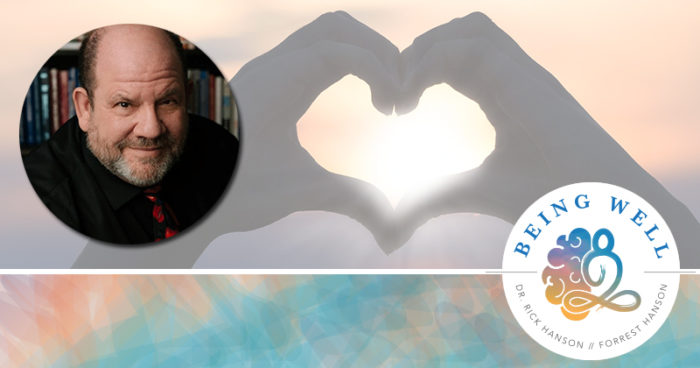
Being Well Podcast: Attachment Theory and Emotionally Focused Therapy with Dr. Sue Johnson
Dr. Sue Johnson, the founder of Emotionally Focused Therapy (EFT), joins Dr. Rick and Forrest to explore how insights from attachment theory can transform our relationships. They discuss how attachment theory provides a map for understanding relationships, the challenges of making skills learned in therapy stick, and the role of vulnerability in creating authentic and fulfilling relationships.
07 May, 2023Being Well Podcast: Repairing with Family, Dealing with Difficult People, and Recognizing Power: Mailbag
Dr. Rick and Forrest open up the mailbag and answer questions from listeners related to how we can build better relationships (particularly with our families) and deal with difficult people.
05 February, 2023Being Well Podcast: How to Navigate Common Arguments
Dr. Rick and Forrest explore the four common structures of relationship disagreements, the subtle ways power shows up in our relationships, separating content from process, and how to stand your ground.
29 January, 2023Being Well Podcast: The Keys to a Great Relationship
Before becoming the “Buddhist brain guy” Dr. Rick spent over 30 years working in private practice as a couples counselor and family therapist. Today we’re leaning on that experience, and learning what we can do to build stronger, more fulfilling relationships.
15 January, 2023Being Well Podcast: Moving Beyond “Fair” to Build a Great Relationship with Nate and Kaley Klemp
Forrest and Dr. Rick are joined by Nate and Kaley Klemp to explore how we can build fun, fulfilling, and truly equitable relationships.
20 November, 2022Being Well Podcast: How to Not Die Alone: Navigating Modern Dating with Logan Ury
On this episode, Forrest talks with Logan Ury about the mechanics of dating. They explore chemistry, romance, apps, and how to reframe our self-limiting tendencies so we can find love that is fulfilling and brings out the best in us.
11 April, 2022Being Well Podcast: Navigating Familial Estrangement
Today on Forrest and Dr. Rick discuss family estrangement, particularly between parents and children, and how the questions we engage in this territory apply more broadly to how we balance our own boundaries with the responsibilities we have toward other people.
20 December, 2021Being Well Podcast: Dating 101: Green and Red Flags, Your First Fight, Dealing With Rejection
Today, Forrest and Dr. Rick Hanson expand their conversation on relationships to explore what traits to look for in a potential partner and in your dynamic with them. They discuss life growth curves, how to manage early conflict, healthy approaches for dealing with rejection, and how to support those still navigating a difficult search.
13 December, 2021Being Well Podcast: How to Find a Long-Term Relationship: Intention, Skills, “Marketing”
Today, Forrest and Dr. Rick Hanson talk about how to maximize your chances of finding a fulfilling long-term relationship. We explore how to develop a clear intention of what you want, the key psychological skills that invite a healthy relationship, and how to market yourself authentically while dating.
06 December, 2021Being Well Podcast: Creating a Secure Relationship with Elizabeth Earnshaw
We all want a relationship that's more than just functional, we want one that's truly fulfilling. On today's episode we're joined by therapist and author Elizabeth Earnshaw. They explore how the pandemic impacted our relationships, the Gottman approach, the stages of a relationship, balancing differing needs for intimacy, and how to request and give repair.
15 November, 2021Being Well Podcast: Building a Better Relationship with Yourself
The most important relationship we have is with ourselves. You’re the only person you’ll be around every minute of every day for the rest of your life. And, unfortunately, that relationship is often our most difficult one. On today’s episode of Being Well, Forrest and I explore how we can become better friends to ourselves, and learn to like ourselves more.
18 October, 2021Being Well Podcast: How You Can Create a Relationship That Lasts
How can we create relationships that last? Forrest and I lean on my many years of couples counseling experience to explore how we can build relationships that are loving, healthy, enjoyable, and reliable. This includes learning the structure of most relationship problems, how to make vulnerable communications, and how to stay open to change.
11 October, 2021Being Well Podcast: How to Change For Good with Dr. Katy Milkman
Though there’s no lack of advice out there, changing in lasting ways is hard. Today Forrest and Dr. Rick Hanson are joined by Dr. Katy Milkman, an expert in the science of change, to explore how we can build better habits, sustain motivation, and change for good.
01 August, 2021Being Well Podcast: How to Become Less Resentful
Resentment is a kind of combination of lots of difficult feelings and can cause as much harm to our relationships – and to our own well-being – as any other emotion. In this episode, we explore resentment: where it comes from, what it does, and what we can do about it.
25 July, 2021Being Well Podcast: Internal Family Systems Therapy with Dr. Richard Schwartz
Learn about Internal Family Systems with Richard Schwartz and discover a wonderful path to healing and growth while repairing your relationship with all of your parts.
20 June, 2021Being Well Podcast: Internal Family Systems Therapy with Susan McConnell
We usually experience ourselves as being one "self," but we all have different characters, different "parts," running around inside our heads. And our relationship with some parts is better than others. On today’s episode of Being Well, senior IFS trainer Susan McConnell joins Forrest to explore Somatic Internal Family Systems, a powerful form of therapy that helps us bring those parts together as a unified self.
28 March, 2021Being Well Podcast: Connecting with Others: How to Attune
During this time of increased isolation our needs for connection are harder to meet than ever. On today’s episode of Being Well, Forrest and I are exploring how we can use the psychological technique of "attunement" to connect better with others, and meet our own need for connection.
07 March, 2021Being Well Podcast: Building the Perfect Relationship with Dr. Stan Tatkin
Relationships are hard, and making them last is even harder. Today Forrest and I explore how we can be happier and healthier in all of our relationships alongside a wonderful clinician, teacher, and researcher: Dr. Stan Tatkin.
21 February, 2021
OTHER TOPICS:
Who Am I? | Depression | Self-Compassion | Anxiety | Difficult People | Anger | Goals | Communication | Mindfulness | Racism | Trauma








